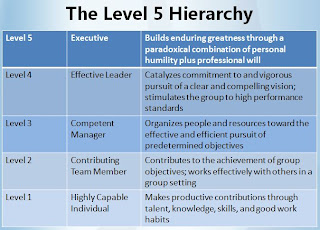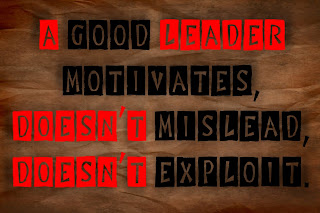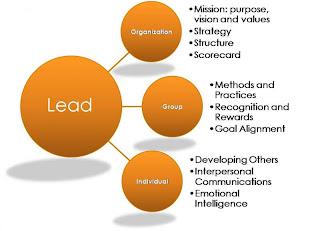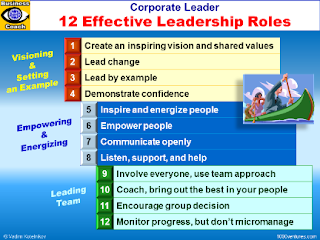SO YA THINK YOU CAN LEAD?
An opinion / advice article on good leadership
by Christi Luv Taylor
What I've learned about the qualities, attributes and characteristics that make good leadership-- and what destroys a good team --from my experiences as both a leader and a follower.
SUMMARY:
- 1) GOOD LEADERS FOLLOW THEIR OWN RULES.
- 2) GOOD LEADERS PLAY TO THEIR TEAM'S STRENGTHS.
- 3) GOOD LEADERS HAVE PATIENCE AND A PROFESSIONAL ATTITUDE.
- 4) GOOD LEADERS DON'T TAKE CREDIT FOR OTHER PEOPLE'S WORK.
- 5) GOOD LEADERS LISTEN TO THEIR PEOPLE.
- 6) GOOD LEADERS KEEP THEIR WORD.
- 7) GOOD LEADERS CARE ABOUT THE DEVELOPMENT AND PRESERVATION OF THEIR PEOPLE.
- 8) GOOD LEADERS ARE CREATIVE THINKERS WHO THINK AHEAD AND LOOK FOR HOW TO FIX A PROBLEM, NOT WHO TO BLAME FOR IT.
- 9) GOOD LEADERS FORM A SET OF PLANS AND ETHICS AND STAND BY THEM.
- 10) GOOD LEADERS ARE MOTIVATED BY A GREATER, DEEPER PURPOSE, BIGGER THAN THEMSELVES, NOT JUST BY THEIR OWN INSECURE EGO OR A SHALLOW DESIRE TO BE THE BOSS AND THE CENTER OF ATTENTION.
DETAILS:
- 1) GOOD LEADERS FOLLOW THEIR OWN RULES --
Practice what you preach, or you will lose everyone's respect, admiration and trust. The choice is yours. Flagrant hypocrisy and pretentious double standards will only show your followers what a dishonest and small-minded person you are, or can be, and that will destroy their faith in you. If you are a good leader, you will follow your own rules and set the standard for everyone else to follow. Whether they succeed or fail, YOU are the standard that they will all aspire to be like. So set a good one. You have to respect your own rules first, if you expect others to respect them at all.
- 2) GOOD LEADERS PLAY TO THEIR TEAM'S STRENGTHS --
Don't repeatedly try to fit a square peg into a round hole. Especially when you have a round peg sitting right in front of you, with bright flashing neon lights blinking at you the whole time. It won't work, and it will make you look both insane and stupid. Especially if everyone else on your team can see it except for you.
Obviously, the artist may not excel at being the financial manager. The financial manager may not excel at being the science teacher. The science teacher may not excel at being the athlete. The athlete may not excel at being the artist, and maybe NONE of them excel at being the humanitarian, social activist or leader. However, if you put everyone where their talents best fit and shine, you've got yourself a brilliantly winning team that's both confident and successful, and also EXCEPTIONAL.
For example, if you're putting on a school play, and you see that only half your actors actually have acting talent, while the others just score points for showing up and having good, loyal school spirit, then obviously, you don't give all your best or leading roles to the crappiest actors, and then hide your best and most experienced actors behind small, supporting roles, with barely any lines. Not only will your production not do as well as it could --and should--, but you will start to look like a fool, and a bad director, who recklessly squanders his resources, gifts and talent, like an ungrateful donkey's butt, and eventually cast members, as well as audience members, and everyone on the outside looking in, will all start to question your judgment, your talent and your qualifications as a director-- and as a leader.
So pay attention to who is good at what, make due with what you've got-- and PLAY to your STRENGTHS. EVERYONE is good at SOMETHING. Don't make the scary-looking, antisocial-but-excellent fry cook, who has great seasoning skills, the server or hostess in the front, and make the fun, charming, beautiful-but-awful cook, who has great people skills and memory, the fry cook in the back. It will destroy both your restaurant and your reputation for both business and leadership sense, and personal and common sense-- and some people may even question your sanity.
- 3) GOOD LEADERS HAVE PATIENCE AND A PROFESSIONAL ATTITUDE --
Respect is a 2-way street. So treat people the way you want to be treated-- and DON'T treat grown folks like children, or you will get a rude awakening when they abandon ship and leave you abruptly, at the last minute.
YOU must set the example for everyone else to follow.
If you don't know how to act like a leader, then before every move you make, ask this question: "What Would Jesus Do?" And if you don't know the answer to that, then ask, "What Would Oprah Do?" :) At least one of those answers should help you in your decision-making process as a budding leader lol. ^_^
The fact is, TRUE leaders-- GOOD leaders --have enough respect for both themselves, and what they're doing, to show professional respect and public courtesy to everyone around them, especially to their own team. When you're a leader, people follow YOUR lead.
Copping a mean or nasty attitude with your followers, or being petty and childish with them, instead of trying to productively resolve an issue you're having with them, is an example of poor leadership. Disrespecting your followers "just because you feel like it" is an abuse of power.
Sometimes these things are just growing pains that you mature out of over time, as none of us are perfect, and we all make mistakes. But sometimes these are red flags to signal that you don't deserve power yet, because you don't know how to handle it, when it is given to you.
So respect your own power and lead your people in the RIGHT direction. Cause if you set a bad example, that sets a negative tone, that will divide your people and destroy your team.
- 4) GOOD LEADERS DON'T TAKE CREDIT FOR OTHER PEOPLE'S WORK --
Theft is theft-- and it makes you a loser. PLUS it gives you a bad reputation and burns bridges that you can never salvage. No one likes getting stabbed in the back. Especially by the people they work closely with and trust with their talents and gifts. There is no excuse for stealing someone else's work or for taking credit for someone else's talent. It just shows what a fraud you are, and how incompetent and untrustworthy you are, and eventually NO ONE will want to work with you because of it. So don't do it. Ever. PERIOD.
- 5) GOOD LEADERS LISTEN TO THEIR PEOPLE --
If you ignore the voices of your people, your people will turn against you, because when people feel like you don't care about them, then suddenly, they don't care about you. If you want to matter to them, you better show them that they matter to you. It's easy to forget or block out people, especially when you're busy or on a mission, but if you want their loyalty to you, you have to show loyalty to them, by showing them that their voices count too.
- 6) GOOD LEADERS KEEP THEIR WORD --
If your people can't trust you, then eventually you won't be able to trust your people. Good leaders are honest and try their best to keep their promises. People lose respect, trust and admiration for people who are all talk and no walk. Actions speak louder than words. If you're completely full of crap and have no honor or pride in the things you say, people will start to feel that way about you. They won't take you or what you say seriously and they will think you're just a hustler who's full of crap, because you never stand by your word. When your word is worth nothing-- then your leadership is worth nothing. So honor your own word.
- 7) GOOD LEADERS CARE ABOUT THE DEVELOPMENT AND PRESERVATION OF THEIR PEOPLE --
A flock of sheep is like a garden of flowers. It must be nurtured and protected 24/7 or it will crumble and die. If you don't want to nourish and guard the garden you've chosen to take over, then you don't deserve to have one. A neglectful shepherd loses his sheep. If you don't want to do the work required to make your team better or to keep your followers united and conserve their contributions, then you're not ready or responsible enough to lead the team yet. This goes for all parts of our lives, be it our relationship to our families, friends, lovers, coworkers, or even just ourselves or God. If you want your leadership relationship to work out-- FEED IT EVERY DAY-- and protect it from natural disasters. Help your team improve and do what you can to help it thrive and grow and maintain a certain level of quality.
- 8) GOOD LEADERS ARE CREATIVE THINKERS WHO THINK AHEAD AND LOOK FOR HOW TO FIX A PROBLEM, NOT WHO TO BLAME FOR IT --
Success is a journey, not a destination. The journey is what defines your success. Successful leaders are pro-active problem-solvers who see the future and look at all the possibilities BEFORE they actualize. So keep your eyes open and make sure you see the good opportunities and bad danger looming up ahead, related to both your followers and your projects.
Living in the here and now is fun, but paying close attention to the future, learning from the past, and using your imagination and perception skills to see all the pros and cons, both the positives and negatives that will pop up, will put and keep you and your team on the right track.
Also focus on how to solve problems, not on who to blame for them. Leaders focus on the constructive and positive elements of the situation, aiming towards fixing the crisis. Followers focus on the destructive and negative elements of the situation, wandering around, aimlessly panicked, in the pit of the crisis.
Also, if you're the leader, then almost no matter what happens, if something goes wrong, it's still actually your fault, because as the leader, it is your job to prepare for the worst and the best, and everything in between, and to get your people and resources together and manage them correctly, and if you fail to do all of that, even if it's because your team sucks in every possible way, then its still your fault, because you either chose a bad team, or you failed to train and work with your team properly.
So don't be quick to focus on the fault over the fix, because not only is it poor leadership, but in the end, no matter what, when it comes to accountability, the one at fault in every disaster-- will always be the leader-- and that's you.
- 9) GOOD LEADERS FORM A SET OF PLANS AND ETHICS & STAND BY THEM --
When we fail to prepare, we prepare to fail. Give your people a floatation device to hold onto when you begin projects so they don't feel like they're drowning or always just trying to keep their heads above water whenever they're under your leadership. People of Earth need stability, reliability, values, understanding, and a grounded sense of security, confidence and direction. If you act bipolar with them or fickle, flakey, unstable, unreliable, untrustworthy, disorganized and unprepared, they will start to feel insecure in your leadership and quick to follow someone else who gives them a better sense of reliability, character, and higher likelihood of drama-free success. So set up a structure for goals and the ground rules of a basic values system that you don't want anyone to waver from. This is the framework, body and backbone of your team and what you all stand for. It will help your team form together and stay the course-- Every good leader's dream!
- 10) GOOD LEADERS ARE MOTIVATED BY A GREATER, DEEPER PURPOSE, BIGGER THAN THEMSELVES, NOT JUST BY THEIR OWN INSECURE EGO, OR A SHALLOW DESIRE TO BE THE BOSS AND THE CENTER OF ATTENTION --
If your biggest motivation for being a leader is simply to be the boss, tell people what to do, and be in control of people (like a tyrannical child), or simply to be the star, hog the spotlight and get everyone's admiration (like an egomaniacal child)-- then you are not fit to be a good leader, because your flawed motivations will doom you to fail, and your faithful followers will eventually figure you out, lose respect, admiration and faith in you, and slowly begin to leave you-- especially if you disrespect, offend or misuse them, a common thing that happens when leaders power trip.
No one likes or trusts a self-centered, ego-centric, arrogant, dishonest, obnoxious prima donna who's real end goal is only to promote himself and his ego, even at the expense of his team and his team's optimum success. If you really are a good leader, and you really care about your team, then you will want the best for your team, even if it means taking a backseat, out of the spotlight sometimes, or being humble and dialing back the attitude of theatrical domination, or simply realizing and focusing on the real reason for your team's purpose and existence-- which is *not* YOU.
The over-all point here is that, to be a good leader, you gotta be really good on a lot of levels. Those levels that you need to either excel in, or be adequate in, are:
- 1. Emotional Intelligence and Public Relations (Communication & People Skills) - so your team doesn't hate you, crucify you, and then abandon you
- 2. Managerial Intelligence and Executive Relations (Organization & Delegation Skills) - so your team doesn't fall apart, look bad, and then embarrass you
- 3. Factual Intelligence and Data Relations (Research & Team Enhancement Skills) - so your team doesn't lose its strengths, miss opportunities, and then stress you
- 4. Spiritual Intelligence and Personal Relations (Talent & Self-Enhancement Skills) - so your team doesn't do all the work, not need you, and then do better without you
- 5. Social Intelligence and Community Relations (Humanitarian & Purpose Skills) - so your team doesn't lose faith or sight of the goal, become divided and then become numb to you
To be a good leader, you've got to care about your:
- 1. People & Relationships
- 2. Resources & Management
- 3. Knowledge & Enhancements
- 4. Character & Ethics System
- 5. Cause & Purpose For It All
Bad leaders don't care about these things.
Bad leaders just want to tell people what to do, be in the spotlight at the center of attention, and feel the rush of the high they get from being in control, from seeing others do exactly what they they say, even if its not beneficial to the team or project, just soaking up the rays of admiration and respect from people, maybe even as a replacement for actual love.
But fame and wealth alone are not the motivations that make good leaders. There's nothing wrong with liking or wanting those things, or enjoying them when you get them. But there is a problem when those shallow, superficial things are the only things pushing you to be a leader. Because if that's all you're really about, then your leadership will suffer for it, your team will suffer for it, and your projects will suffer for it.
Unless you've made it very clear that these shallow, superficial pleasures ARE your team's 1st or direct goal and main mission. But even when it's a team effort to acquire those things, that doesn't mean the team's main focus should still be on you. Unless you've made it clear that YOU are the mission of the team-- don't compete with the mission of your team. That's the 1st and biggest sign of bad leadership.
The world is full of bad leaders who get ahead by lying, cheating, stealing or because their daddies are rich and powerful.
It's time we fill this world with good leaders.
Good leaders are the heroes who come in and save the day.














No comments:
Post a Comment